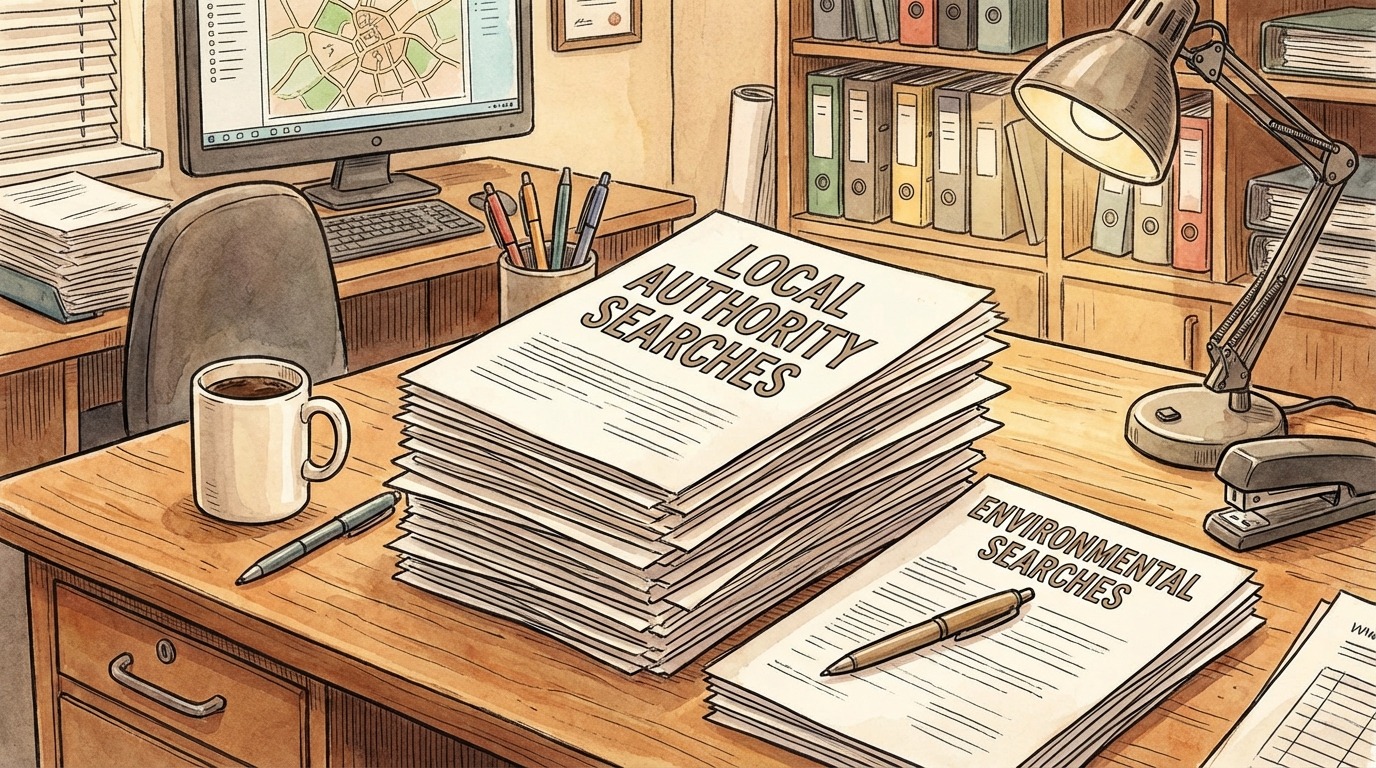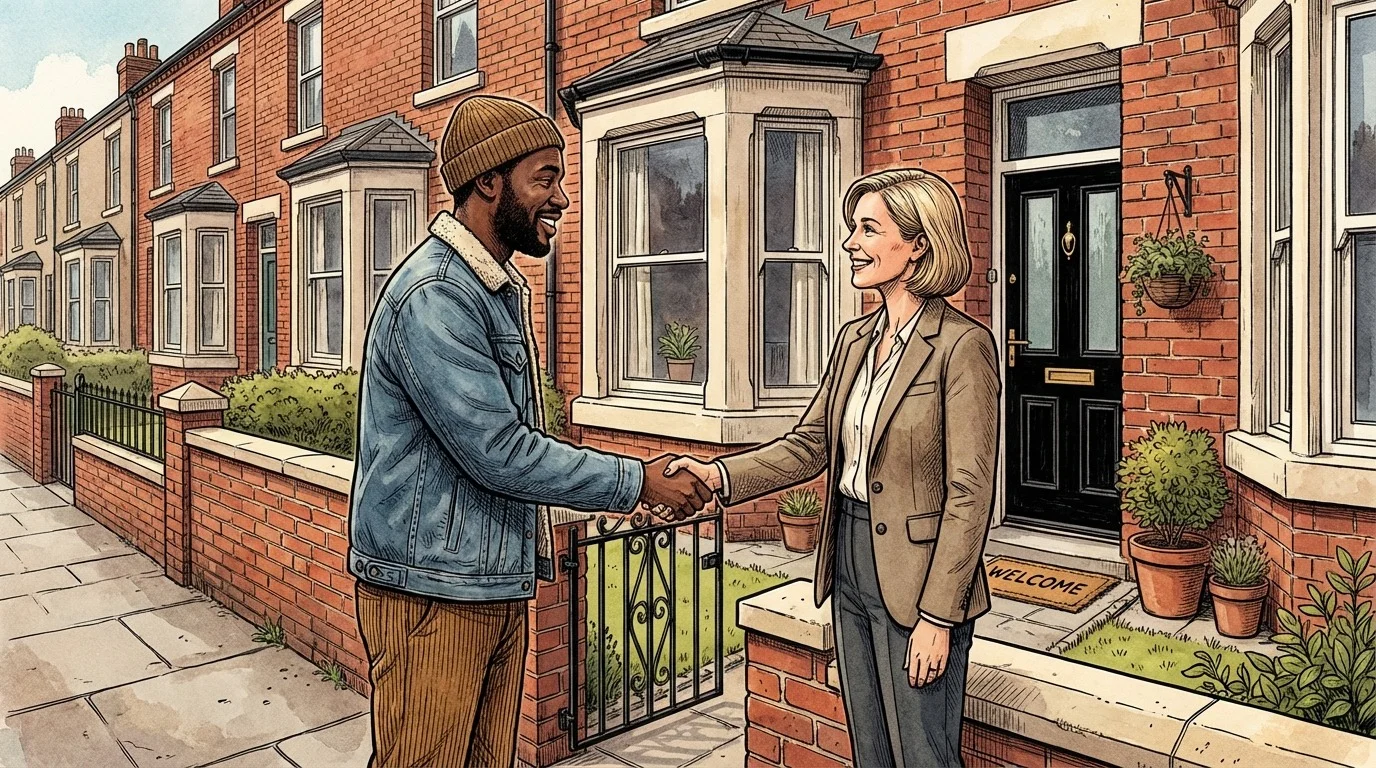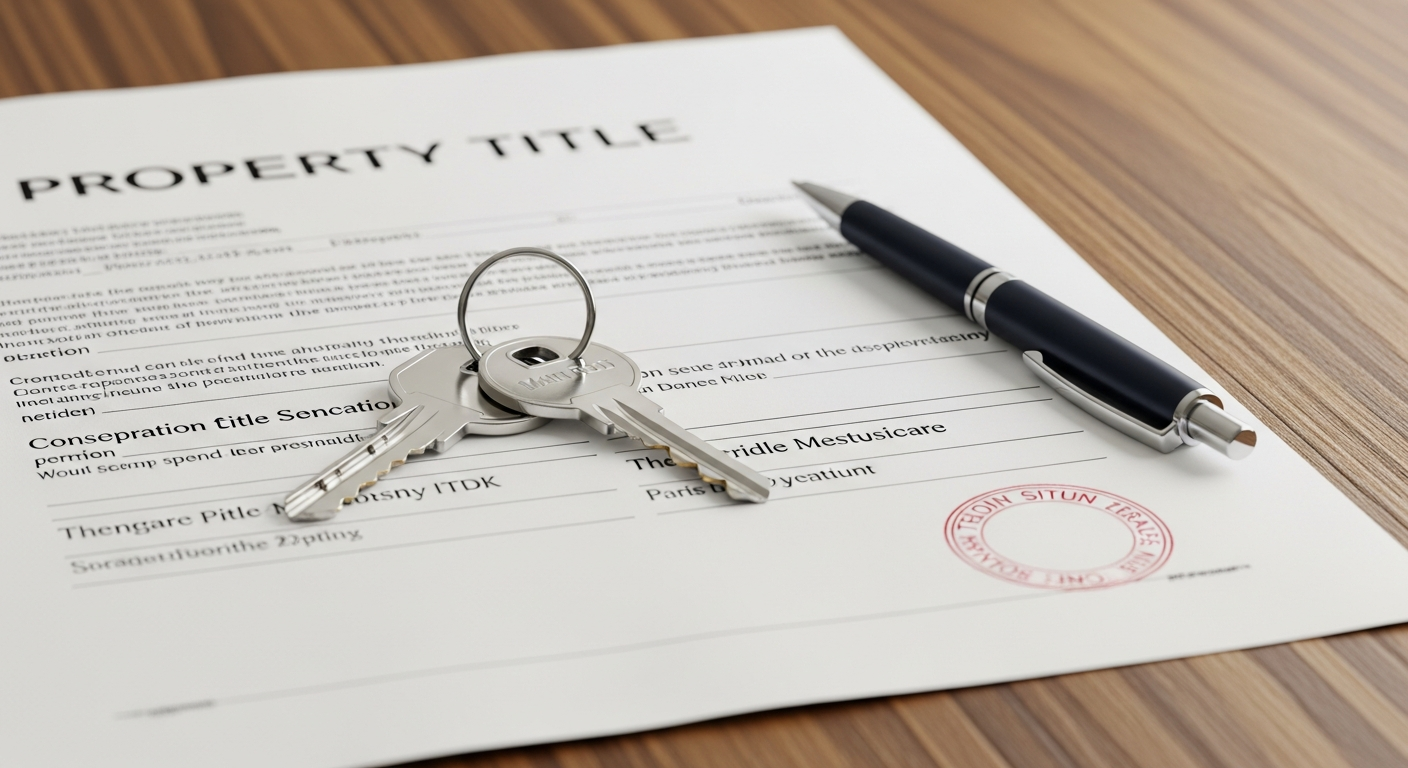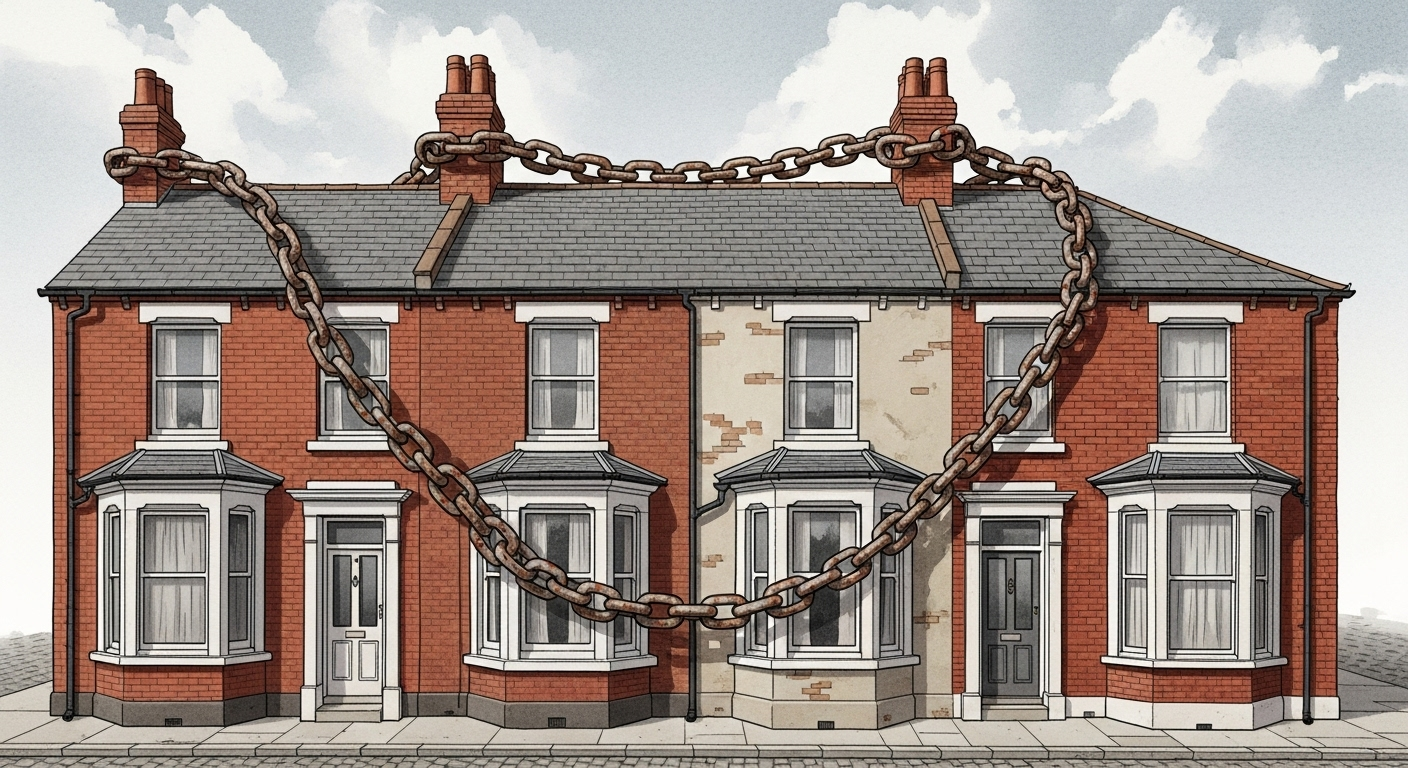Blog
Guide

Jargon Guide
Conveyancing Jargon Guide
In the legal property world, there is a lot of jargon that only property solicitors and conveyancers use. At Arrow Conveyancing, we understand that you may come across terms that you may have never heard of before which can be quite daunting! We have created a jargon guide to help you get to grips with some of the terms that may crop up.
A
Abstract of title
Summarises details of the title deeds and other documents that prove the seller’s right to sell a property and any mortgages or claims that relate to the property.
Advance
The sum of money provided by the mortgage provider to purchase the property.
Agreement
Often used as a word for contract
B
Basic fee
The fee charged by the solicitor for their time and skills.
Boundaries
Boundaries define the extent of the property and are often although not always shown on the deeds (usually marked by fencing, walls or hedging).
Brine Search
A search to establish if a property might have a chance of structural damage from brine as a result of disused workings near the property.
Buildings / home insurance
Insurance to cover the cost of repairing damage to the structure of your property usually including garages, sheds, fences, pipes, cables and drains.
Building regulation approval
Approval by the local authority on the minimum standards for design, construction, materials and alteration which apply to virtually all buildings.
C
Certifying a document
Certify a document as a true copy of the original by getting it signed and dated by a professional person, like a solicitor. When you apply for something like a bank account or mortgage, you may be asked to provide documents that are certified as true copies of the original.
Chain
Where a seller is buying another property there is a sequence of linked purchases known as a chain.
Chaps transfer
On completion the balance of the purchase price is paid by a same day transfer of funds between solicitors’ client accounts by electronic transfer. CHAPS means Clearing House Automated Payment System.
Charge
A debt secured against your house or another property that you own
Chattels
Items of personal property left over at a house and included in the purchase price, such as furniture. These are described on the Fixtures, Fittings and Contents form.
Completion
The moment when the buyer becomes the new owner of the seller’s house and ownership changes legally.
Completion statement
A written document that shows all of the receipts and payments due in relation to the purchase / sale
Contract pack
The set of documents sent by the sellers conveyancing solicitor so the legal title over the property can be confirmed.
Conveyancing
The legal work which includes the preparation of documents needed to buy and sell properties.
Covenants
Legal obligations contained in a Deed to do or not do something.
D
Deeds
The official documents confirming who owns a property, these are held by the lender if the property is mortgaged until all outstanding amounts are paid.
Deposit
The money that the buyer’s solicitors hand over to the seller’s solicitors upon exchange of contracts.
Disbursements
These are the charges made to third parties that include Local authority, water and drainage, environmental and mining searches as well as stamp duty and Land Registry fees.
DIY conveyancing
Most people appoint a solicitor or conveyancer when buying or selling a property but some choose to undertake the process themselves. This can be very risky in some cases, such as when dealing with leasehold properties.
Drainage search
A check carried out during the conveyancing process that ensures a property is connected to both fresh and foul water sewers.
E
Easement
The right of way over another person’s piece of land.
Equity
Usually means the difference between the value of a property and the amount owed to the mortgage lender
Exchange of contracts
The formal exchanging of the two parts of the contract between the seller and buyer where they become legally bound to complete on an agreed date.
F
Fixtures, fittings and contents form
A standard form completed by the seller which details all items in the property which they have agreed to leave as part of the sale price. This is attached to the contract.
Freehold
Owning the freehold on a property means owning the building and the land outright.
G
Gazumping
When a seller accepts a verbal offer on their property from one buyer, but then accepts a higher offer from another potential buyer.
I
Insurance Policy
An insurance policy taken out to protect the buyer against any issues incurred by a defect in the legal title.
L
Land certificate
An official certificate issued by the Land Registry where a property is registered detailing the ownership where there is no mortgage on it.
Land charges search
A search at the Land Charges Registry to establish if the seller has any bankruptcy proceedings due or if the property is unregistered to find out if there are any mortgages or interests registered against the property.
Lease
Where a property is leasehold, the lease is the document giving the lessee the rights to possession of the property for the lease term and setting out all rights and obligations.
Leasehold
Where the property is leased from the freeholder (or landlord) for a fixed number of years for and there is a payment of annual ground rent.
Legal transfer
This is the document which actually transfers the legal title to the property from one person to another and is signed shortly before completion.
Lessee
Where a property is leasehold the lessee is the current owner of the leasehold property until the leasehold term ends.
Lessor
This is the landlord or freeholder who owns the freehold title and is entitled to the ground rent under the lease until the end of the lease term.
Local authority search
Specific information about a property that is sent to the local authority. It includes whether the road serving the property should be maintained by the council and whether there have been any planning applications on the property.
M
Mining search
A search to check whether the property may be affected by past coal mining activity beneath it that could result in subsidence.
Mortgagee
A money lender, such as a building society or bank, who secures the loan against a property.
Mortgagor
The borrower who gives security to the lender.
Mortgage deed
The official legal document that the buyer signs to formalise the mortgage agreement.
Mortgage offer
Also known as, an ‘offer of advance’ is given by the mortgage lender to a borrower to confirm that they will lend an amount of money.
N
NHBC
National House Builders Council. The NHBC provide a ten year guarantee for new properties.
O
Occupier’s consent
Any person who lives at the property but will not be a part owner will be asked to consent to the mortgage being taken out and agree to move out if the lender takes possession.
Office copy entries
Official copies of the Title, obtained from the land registry, confirming ownership of the property.
P
Power of attorney
This document allows a person to act as a legal representative of somebody else with their consent. These are often used to protect the financial interests of the ill or the elderly.
Pre-completion searches
These are searches undertaken by your conveyancing provider before contracts are exchanged. They check to see if you have been bankrupt and that the property in question is legally owned by the seller. Also known as priority searches.
Property information form
This is a questionnaire about the property completed by the sellers that they would otherwise be unable to find through searches.
R
Redemption
The full repayment of an existing mortgage.
Registered land
Property which is registered at the HM Land Registry.
Repayment mortgage
A mortgage where the borrower makes interest and capital payments to the lender.
Requisition on title
Queries raised about the ownership of the property and how that ownership will be transferred.
Rentcharge
Some freehold properties are subject to a rentcharge payable to the rentcharge owner. This is usually an annual sum paid by the owner of the freehold land.
S
Searches
Formal enquiries made to various authorities to provide the buyer with more information about the property they wish to buy including Local Councils, the Environment Agency and Coal and Water Authorities
Service charge
A payment levied by landlords for the costs of maintaining and running a development or building.
Stamp duty
You must pay Stamp Duty Land Tax (SDLT) to the Government if you buy a property or land over a certain price in England, Wales and Northern Ireland.
Staircasing
If you’ve bought into a Shared Ownership home, you’ll own a percentage share of that property lease. Afterwards, you can buy further shares and own more of that property, or even buy outright ownership. This process is known as staircasing.
Structural survey
An assessment of the essential framework of a building.
T
Tenant
A person who pays rent to another for the use of a property or land.
Tenure
Freehold or leasehold property ownership.
Tin search
A search to establish whether the property may have been adversely affected by tin mining activity.
Third party rights
When someone other than the legal owner of a property has the right to use or control the land of which they have no ownership.
Title deeds
These documents are evidence that the seller actually owns the property, and details any rights or obligations that affect the property.
Transfer deed
A document that legally transfers your property into the name of the buyer. It must be signed by you in the presence of a witness.
Transfer of equity
When someone is added or removed from the title deeds of a property perhaps due to a couple separating or a parent adding a child.
U
Unregistered title
Where land has not been registered at the HM Land Registry and ownership has to be proved by the production of a complete chain of documents showing successive ownership.
V
Valuation
Valuation Assessment of a property’s value.
If we've not answered all your questions in our conveyancing jargon buster, why not take a look at our answers to your conveyancing questions.
Disclaimer
The materials on this website do not constitute legal advice and are provided for general information only. Whether express or implied, no warranty is given concerning such materials. We shall not be liable for any technical, editorial, typographical, or other errors or omissions within the information provided on this website, nor shall we be responsible for the content of any web images or information linked to this website.
The information contained in this article does not constitute financial advice or recommendation and should not be considered as such. Arrow conveyancing does not offer financial advice and is not regulated by the Financial Conduct Authority (FCA), the authors of this article are not financial advisors and are therefore not authorised to offer financial advice.
Published on :
December 8, 2024












.png)





